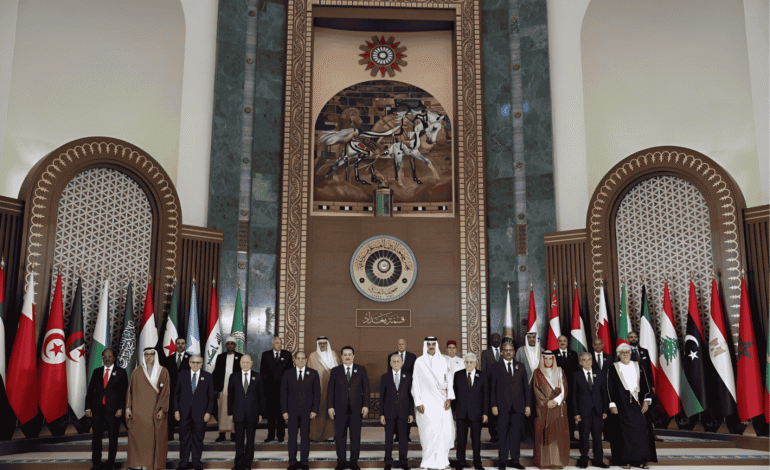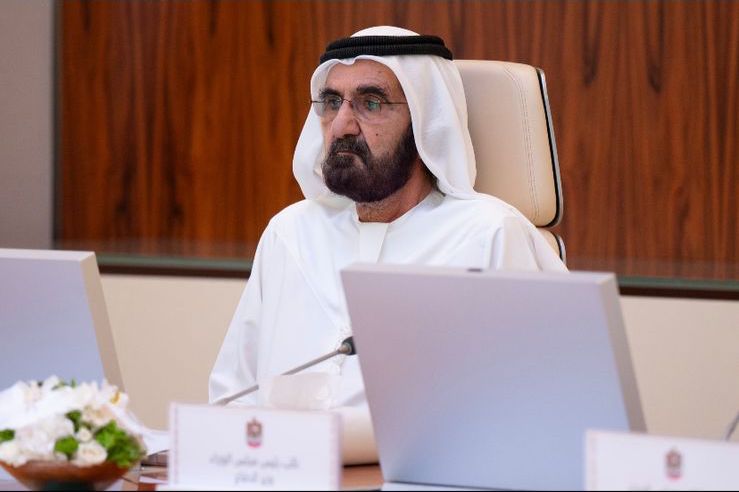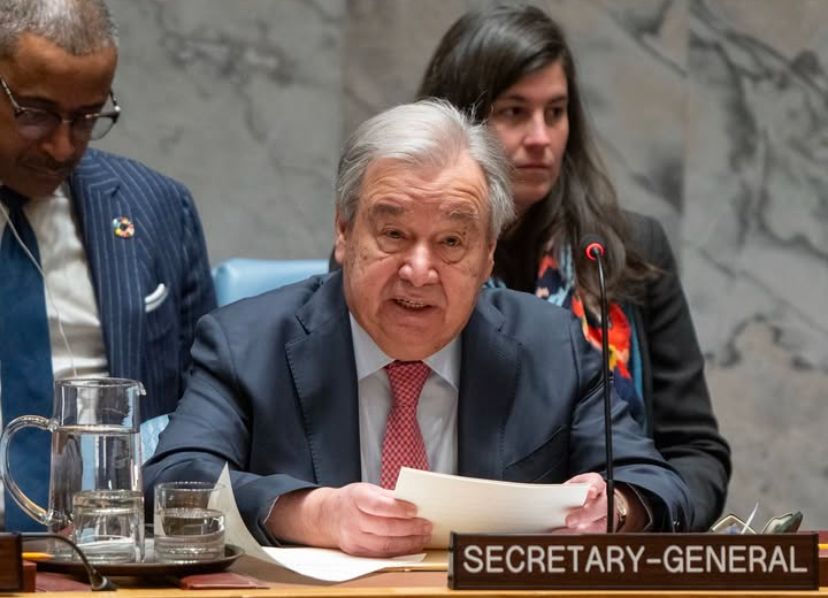Arab League Summit in Baghdad Tackles Gaza Crisis

The Arab League convened in Baghdad on Saturday for a high-stakes summit aimed at addressing the deepening crisis in Gaza and broader regional challenges. This urgent diplomatic gathering follows former US President Donald Trump’s provocative tour of the Gulf, which left Arab leaders reeling. His statements about Gaza have intensified tensions and added urgency to the summit’s agenda. As Israel expands its military campaign, Arab states must decide how to respond with unity and purpose.
Key leaders, including Palestinian President Mahmoud Abbas, Egyptian President Abdel Fattah Al Sisi, and Qatari Emir Sheikh Tamim Bin Hamad Al Thani, have joined the talks. However, the absence of some major figures reflects underlying political divisions. Still, the primary focus remains clear: the escalating war in Gaza and its far-reaching consequences.
Trump’s Gaza Statement Fuels Arab Discontent
During his recent visit to the Gulf, Donald Trump shocked the region with his declaration that the United States would “take over” Gaza and transform it into the “Riviera of the Middle East.” The statement drew widespread condemnation from Arab leaders and sparked fierce public backlash. Many saw it as a blatant attempt at foreign interference in Palestinian territory, disrespecting both sovereignty and history.
Trump’s comments revived memories of colonial ambitions and deepened suspicions about American intentions in the Middle East. Arab leaders, already preparing a reconstruction plan for Gaza during a March summit in Cairo, felt a renewed urgency to safeguard Palestinian autonomy. That plan is now being revisited and reworked as events on the ground rapidly evolve.
The statement has had a unifying effect among several Arab governments, many of which are otherwise divided on key issues. Trump’s words acted as a catalyst, pushing Arab states to accelerate discussions about regional self-determination and shared responsibility in resolving the Gaza crisis.
Leaders Arrive in Baghdad Despite Political Divisions
Palestinian Authority President Mahmoud Abbas was the first leader to arrive in Baghdad, underlining the Palestinian leadership’s central role in the discussions. He was later joined by Egyptian President Abdel Fattah Al Sisi and Qatari Emir Sheikh Tamim Bin Hamad Al Thani. Both countries play critical roles in the Palestinian-Israeli conflict. Egypt shares a border with Gaza and acts as a primary mediator, while Qatar has long provided financial support and engaged in dialogue with both sides.
Despite these notable arrivals, the summit has been marked by the absence of several influential Gulf leaders. While official explanations cite logistical and security reasons, analysts suggest deeper political tensions are at play. These include divisions over normalization agreements with Israel and conflicting positions on the role of Western powers in Palestinian affairs.
Even so, the summit’s attendance list reflects a strong regional consensus on the need to act. The presence of Egypt and Qatar ensures that some of the region’s most influential voices will shape the final outcomes.
Israel Expands Offensive in Gaza
As the summit got underway, the Israeli military launched a new wave of airstrikes across the Gaza Strip. The Israeli government confirmed these were part of the “initial stages” of a major offensive aimed at what it called the “conquest” of Gaza. This aggressive terminology has alarmed Arab governments and fueled fears of full-scale occupation.
The Israeli campaign has already caused extensive damage, with reports of strikes on civilian infrastructure and densely populated neighborhoods. Hospitals in Gaza are overwhelmed, and humanitarian agencies have raised red flags about the collapsing healthcare system. The United Nations has called for immediate humanitarian access and a ceasefire, warning of a looming catastrophe.
Arab leaders gathered in Baghdad are expected to release a unified statement condemning the offensive. Discussions are underway about forming a diplomatic task force to lobby for a ceasefire and provide urgent humanitarian aid. Iraq, the host nation, has also proposed opening temporary aid corridors through neighboring countries.
Cairo Plan for Gaza’s Reconstruction Revisited
In March, Arab leaders met in Cairo to discuss the future of Gaza. That summit produced a preliminary framework for reconstruction, focused on infrastructure development, political reconciliation, and economic support. However, implementation has stalled due to internal disagreements and a lack of clear leadership.
The Baghdad summit is now seen as a chance to revive the Cairo plan. Egyptian officials have proposed updated funding commitments and timelines, while Qatar has pledged additional financial support. Several states are also exploring the possibility of involving international partners like the European Union, China, and Turkey in reconstruction efforts.
Palestinian President Mahmoud Abbas is advocating for a central role for the Palestinian Authority in managing reconstruction efforts. Yet, this proposal remains controversial. Some Arab states support the Authority’s leadership, while others view it as ineffective or disconnected from the situation in Gaza, where Hamas remains in control.
Finding a workable governance model for Gaza’s future remains one of the most complex challenges facing the Arab League.
Iraq’s Diplomatic Role in Regional Affairs
Hosting the summit is a significant step for Iraq, which is seeking to reclaim its position as a key regional player. Prime Minister Mohammed Shia Al Sudani has actively promoted Iraq as a neutral venue for high-level diplomacy. This summit, the largest of its kind in Baghdad in years, is seen as a test of that ambition.
Baghdad’s hosting of the Arab League summit comes at a time when Iraq is trying to balance relationships with neighboring Iran, Gulf countries, and the West. By positioning itself as a broker rather than a partisan actor, Iraq hopes to contribute meaningfully to regional stability.
The smooth coordination of logistics, security, and diplomatic meetings has already won praise from visiting delegations. Analysts believe that if the summit leads to tangible outcomes, Baghdad could emerge as a new center for Arab diplomacy.
Wider Regional Crises on the Agenda
Although Gaza dominates the summit, leaders are also discussing other ongoing crises in the Arab world. These include the civil war in Sudan, the political impasse in Lebanon, the fragile truce in Yemen, and the escalating tensions between Egypt and Ethiopia over the Grand Ethiopian Renaissance Dam.
Each conflict presents unique challenges. In Sudan, months of fighting have displaced millions, while Lebanon remains without a functioning government. In Yemen, despite a fragile ceasefire, skirmishes continue between rival factions. The Nile dispute, meanwhile, threatens to strain relations between two of Africa’s most populous countries.
The Arab League is considering the appointment of special envoys to oversee conflict resolution in these areas. There is also discussion about establishing an annual review process to track progress on resolutions passed at the summit. Such institutional reforms could enhance the League’s credibility and effectiveness over time.
Public Reaction and Media Coverage
Public interest in the Baghdad summit is high, with Arab media offering extensive coverage and commentary. Television networks have broadcast round-the-clock updates, while major newspapers across the region are running front-page editorials urging action on Gaza.
Social media has also played a major role in shaping the narrative. Hashtags calling for Arab unity and an end to the war in Gaza are trending across platforms like Twitter, Instagram, and TikTok. Users are demanding concrete steps from Arab governments, ranging from economic sanctions on Israel to increased humanitarian aid for Palestinians.
Protests have been reported in several Arab capitals, including Cairo, Amman, and Beirut. Demonstrators are calling on their leaders to take stronger stances and to move beyond statements toward action. The pressure from civil society may influence the summit’s final outcomes and force leaders to consider bolder strategies.
The summit’s ability to meet public expectations will be a key factor in determining whether it marks a turning point or just another diplomatic formality.








1 Comment
[…] May 25, 2025, the Hamas-run authorities in Gaza executed multiple individuals accused of looting food and humanitarian supplies, marking a dramatic […]
Comments are closed.